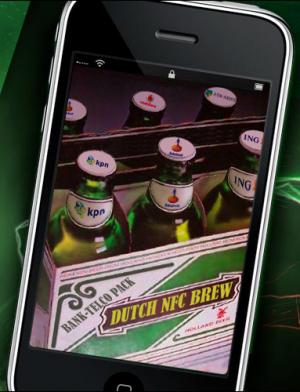Dutch Banks and Telcos Consider NFC Mobile-Payment Launch

Three major Dutch banks and three mobile operators are considering a coordinated rollout of NFC-based mobile payment in the Netherlands, NFC Times has learned.
The banks: Rabobank, ING and ABN Amro; and telcos, believed to be: KPN, Vodafone Netherlands and (UPDATE): T-Mobile Netherlands; are considering offering customers contactless payment, loaded onto SIM cards in NFC phones. The payment applications would support either MasterCard PayPass or Visa payWave. UPDATE: Rabobank's small mobile virtual network operator, Rabo Mobiel, earlier reported as part of the group, will probably join later, said sources. END UPDATE.
The three banks and three telcos, dubbed the “Six Pack” by those involved in the project, have been secretly meeting for months discussing a possible commercial launch, NFC Times has learned. They extended an earlier deadline for a decision that expired around April. A decision was scheduled for this week on whether to go forward with the plans, NFC Times has learned. Telcos and banks contacted by NFC Times declined to comment.
NFC Times has learned the initiative is generally being led by KPN, Rabobank, along with ING–all of which have held NFC trials in recent years. ABN Amro, Vodafone Netherlands and T-Mobile Netherlands are believed to be largely following.
If they move forward, the parties would likely set up a national trusted service manager, or TSM, to download and manage the payment applications on the SIM cards or other secure elements in phones. The group would likely need to hire a TSM technology provider to handle the over-the-air management. The telcos might also jointly source handsets.
But it was not clear when the project would launch and which NFC phones they would use, though more models are expected on the market by the first part of next year. If the parties wanted to launch sooner, they could get started with bridge technologies.
Nevertheless, it appears likely a launch would not happen until next year. For one thing, there are few contactless point-of-sale terminals deployed in the Netherlands. However, the country is rolling out EMV terminals that could be more easily upgraded than the older terminals.
If it goes forward, the project is perhaps most significant because it’s one of the few coming to light in which multiple telcos and banks would be working together on mobile payment. A green light for the project would probably mean the parties have agreed on a business model for sharing revenue.
While telcos and banks in France have taken a coordinated approach to NFC mobile-payment standards and procedures and are jointly launching a small commercial project in the city of Nice, they have had difficulty working out long-term business models. In the United States, banks and telcos appear to be even further apart, and are planning separate mobile-payment services.
A national TSM, if the Dutch banks and telcos form one, would also be one of the few such organizations set up anywhere.
In France, banks and telcos are free to hire their own TSMs, and there have already been some interoperability problems in Nice. The one national TSM now operating is Japan's FeliCa Networks, mainly owned by Sony Corp. and NTT DoCoMo. While interoperability of applications on Japan's NFC-like contactless wallet phones is not an issue, FeliCa Networks reportedly charges high fees. There are plans for a national TSM in Singapore, set up through the government.
The Dutch banks and telcos that have held NFC trials have mostly done so separately, although Rabobank, Rabo Mobiel and KPN were all involved in a mobile-payment trial launched in 2007 at an outlet of Dutch supermarket chain C1000. A separate application enabled the 100 users in the trial to receive digital bottle deposit refunds.












